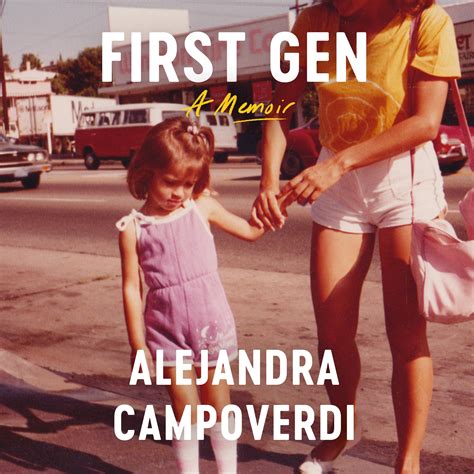Alejandra Campoverdi, by just about every measure, is an amazing person with an inspirational success story. The first in her family to graduate from college, she’s an author, a women’s health advocate, a public intellectual, and a former White House aide under President Obama. Campoverdi was a brilliant student, graduating cum laude from the University of Southern California’s School of Communication. She was a model and actress, and she’s produced a powerful documentary about women with hereditary breast cancer.
Without knowing her or reading her compelling book, First Gen: A Memoir, one might think that Campoverdi has the recipe for rising out of poverty into a position of privilege. Do not let appearances foreclose curiosity. Campoverdi’s memoir is an extremely interesting account of smarts, ambition, courage and drive overcoming powerful constraints and the damaging effects of impostor syndrome. Despite all her external successes, internally accepting the identities that come with success was a great challenge for her. Regardless of what one saw externally, internally Campoverdi pushed herself, wrestled with her heritage, and paid substantial psychic costs. Her memoir opens a window into those struggles. She found ways to keep moving even with what manyy would find to be crippling challenges. This perspective and self-awareness gives First Gen an extremely interesting, and important, perspective.
It is a very well-written book. Campoverdi’s sense of place and time makes for engaging prose, whether it is the Harvard University Latinx Graduation (she was a speaker), sitting in her living room before heading to a photo shoot for Maxim magazine, or teaching in the south side of Los Angeles. Her memories are specific, laced with details. Family and heritage are central to her identify and her values. Campoverdi does not tell her story with any sense of premonition. There’s no “here’s how you do it” in her history of advancement, challenge and difficulty overcome. She was working hard to figure things out as a teenager and one sense that she’s working just as hard today. What’s different is a deeper and more forgiving understanding of herself and her family.
Hers is a compelling story and a compelling memoir.
Of particular value to those in education is an appreciation of Alejandra Campoverdi as a complex person. Yes, she was an extraordinarily gifted student but she was also much more than a striver. Far too often we may find ourselves excited about an engaged and talented student, a student for which we map out opportunities and paths. This can all be to the good, but it can also beg the question if our insight as educators always serves the student’s best interest. A therapist, suggested by Campoverdi’s mother, was absolutely essential in understanding and controlling her anxiety attacks.
Campoverdi consistently struggled with feelings of belonging, of deserving, and of fitting in. As she set and made goals, she was regularly surprised that they did not give her a sense of happiness and satisfaction. The alternative – not pushing herself – did not feel like a healthy option, either. Campoverdi knew that she was a “First” in many different ways. The added burden she felt acutely was being an “Only” – the only one in the program, the only one at the table. It took years of work for her to acknowledge the totality of her experience, her family, and her emotions. Embracing her vulnerability gave Campoverdi great power and with it, a platform for further growth.
First Gen gives a powerful voice to the difficulties so many students face in deciding to attend and to complete higher education. Campoverdi’s journey is inspirational – not just for what she’s accomplished, but for what she’s shared and how she’s grown.
David Potash
